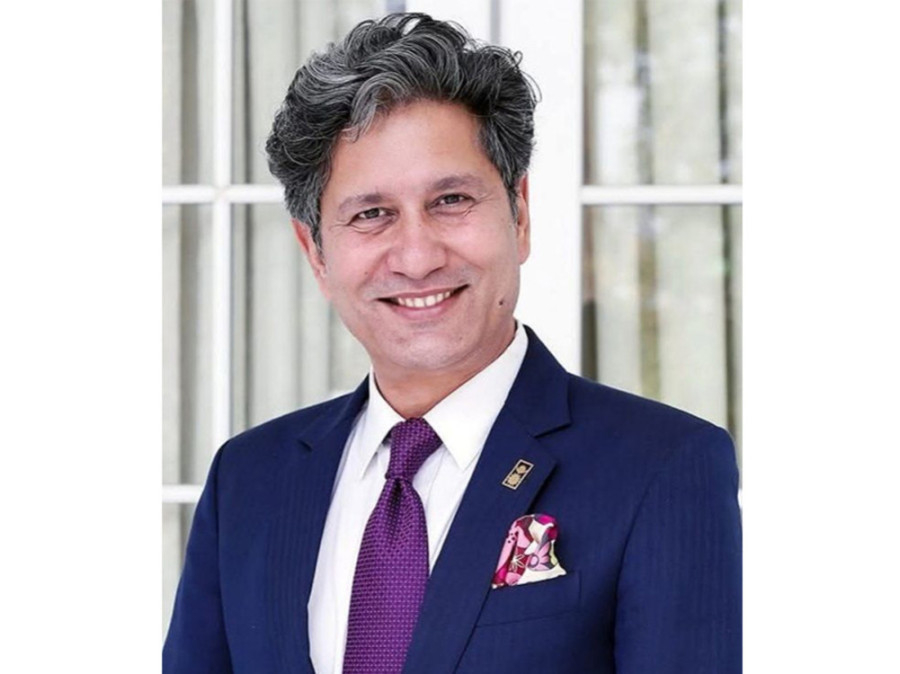National
Cybercrime case filed against journalist Dil Bhusan Pathak
The move reflects a ‘troubling pattern’ of misuse of the Electronic Transactions Act, says a media expert.
Post Report
The Kathmandu District Attorney’s Office filed a cybercrime case against journalist Dil Bhusan Pathak at the Kathmandu District Court on Monday, accusing him of spreading hate and hostility through content published on his YouTube channel.
The Cyber Bureau of Nepal Police registered the case at the Attorney’s Office, alleging that one of Pathak’s recent video contents on Youtube violated provisions of the Electronic Transactions Act by disseminating material intended to provoke hatred.
Dipak Kumar Shrestha, information officer at the Kathmandu District Court, confirmed that the case has been registered at the court.
The Cyber Bureau filed the case on Monday, 11 days after the Patan High Court issued an interim order preventing authorities from arresting Pathak. Pathak had filed a petition at the Patan High Court after Nepal Police’s Cyber Bureau secured an arrest warrant from the Kathmandu District Court.
When asked why the case was filed despite the high court’s interim order prohibiting authorities from arresting Pathak without legal grounds, Shrestha said that the Kathmandu District Government Attorney’s Office received an investigation report submitted by the Cyber Bureau of Nepal Police, which made grounds for the case.
“An arrest warrant will be reissued with two notices with time limits of seven and 35 days,” Shrestha said. “If Pathak fails to appear before the court to present his defense, the case will proceed ex parte, in his absence.”
Cyber Bureau spokesperson and Senior Superintendent of Police Deepak Raj Awasthi confirmed that the bureau submitted the report on June 27.
“Our responsibility was to carry out an investigation, which we completed and submitted the report,” Awasthi said. “It is not our role to determine guilt or innocence; the conclusions of our report may be upheld or rejected during court proceedings. We simply fulfilled our responsibility to investigate and submit the findings.”
But media experts say otherwise.
The case against Pathak reflects a “troubling pattern” of misuse of Article 47 of the Electronic Transactions Act, said media expert Tara Nath Dahal. “This is not an isolated incident,” Dahal said. “There have been multiple previous cases where authorities have targeted not only journalists but also the broader public’s right to freedom of expression.”
If the published content had really harmed anyone, Dahal added, the matter should have been taken to civil court under defamation and liability laws. “That would have been the appropriate legal recourse,” he said.
Alternatively, such disputes fall under the jurisdiction of the Press Council Nepal, not criminal prosecution under the Electronic Transactions Act, Dahal added.
Dahal further said that the decision to bypass these mechanisms suggests that anytime the state is displeased with journalistic content, it can resort to legal intimidation and arbitrary arrest. “This is a direct threat to press freedom and democratic discourse,” he said.
The high court had ruled that the available evidence did not justify Pathak’s immediate detention and emphasised the need to uphold due legal process.
According to Dahal, the High Court issuing an interim order stating there was no legal basis for an arrest warrant against Pathak means the court itself found insufficient evidence or grounds for the case.
“The way Cyber Bureau and Nepal Police are pursuing the case despite the court order raises serious concerns about abuse of power and deliberate circumvention of judicial oversight,” he added.
The case stems from a video uploaded on Pathak’s Youtube channel Tough Talk, in which he raised questions regarding alleged financial activities linked to Jaiveer Singh Deuba, the son of former Prime Minister and Nepali Congress President Sher Bahadur Deuba and Foreign Minister Arzu Rana Deuba.
Pathak’s legal team had challenged the arrest warrant, arguing it lacked sufficient legal grounds and infringed upon journalistic freedom. Subsequently, the court had instructed Nepal Police to refrain from arresting him until the case concluded.




 21.12°C Kathmandu
21.12°C Kathmandu













